Comprehensive Detailed Guide about Sunflower Honey
Honey is a well-known ingredient for everyone. We all know that its characteristics and flavor depend on the flower types collected from nectar, reflecting the origin. Some honey tastes sweet and simple, while others offer a more complex flavor. The origin of honey plays a crucial role in determining the nutrient content of the honey, its color, texture, and crystallization time.
Table Of Contents

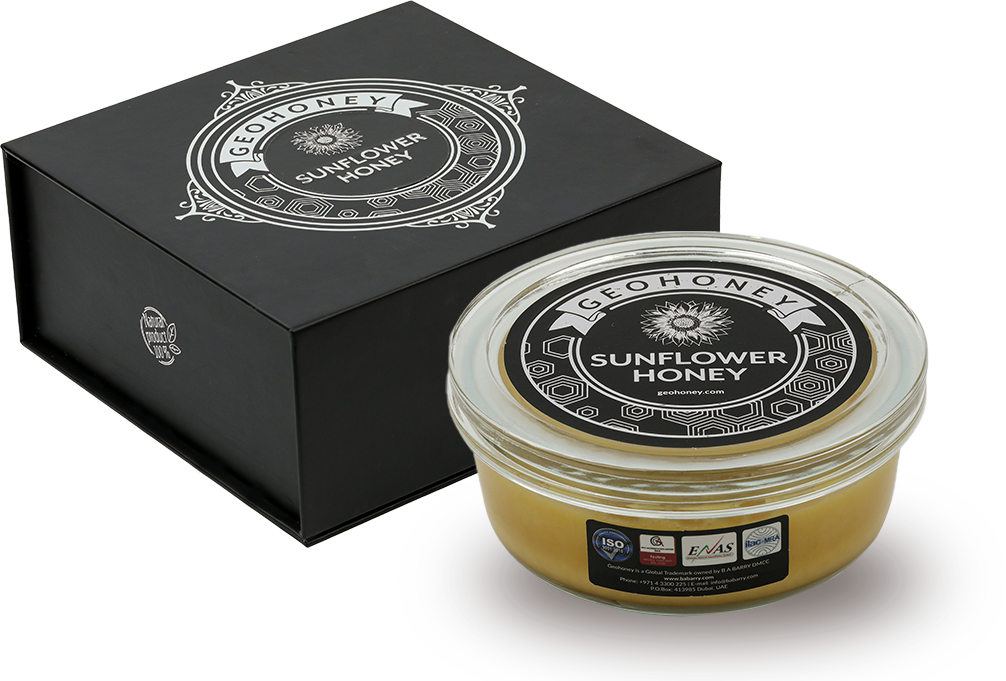
What is Sunflower Honey?
As the name suggests, sunflower honey is made using the nectar collected by the bees from sunflowers. Sunflowers are mainly native to North America but have been grown on several other continents for hundreds of years. Sunflower, aka HELIANTHUS ANNUUS L., is one of the most beautiful flowers from the Asteraceae family. Unfortunately, it is an annual growing plant that cannot survive after winters. These plants grow high up to 3 meters with a flower head as wide as 30 cm. Sunflowers require full sun to bloom and rotate all day along with the sunlight.
It is one of those honey types that crystallizes quickly. Though it forms crystals very soon, it is highly nutritious and rich in beneficial elements such as minerals, amino acids, antioxidants, and antibacterial properties.
What Are the Properties of Sunflower Honey?
It generally appears in bright yellow ranging from light yellow to golden orange. As this honey type can crystallize quickly, it has the power to retain its bright yellow color but usually takes on a delicate beige undertone. It is estimated to begin forming crystals naturally in 20 days or maximum of 2 months after it is extracted or harvested from the hives. It is mild in flavor and is highly viscous at room temperature.
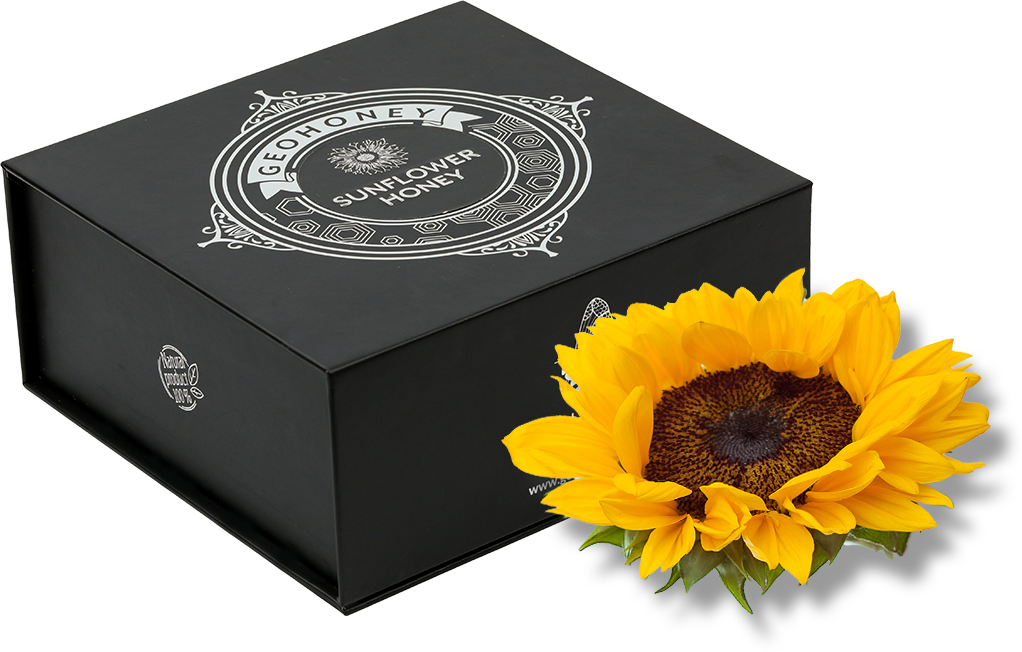
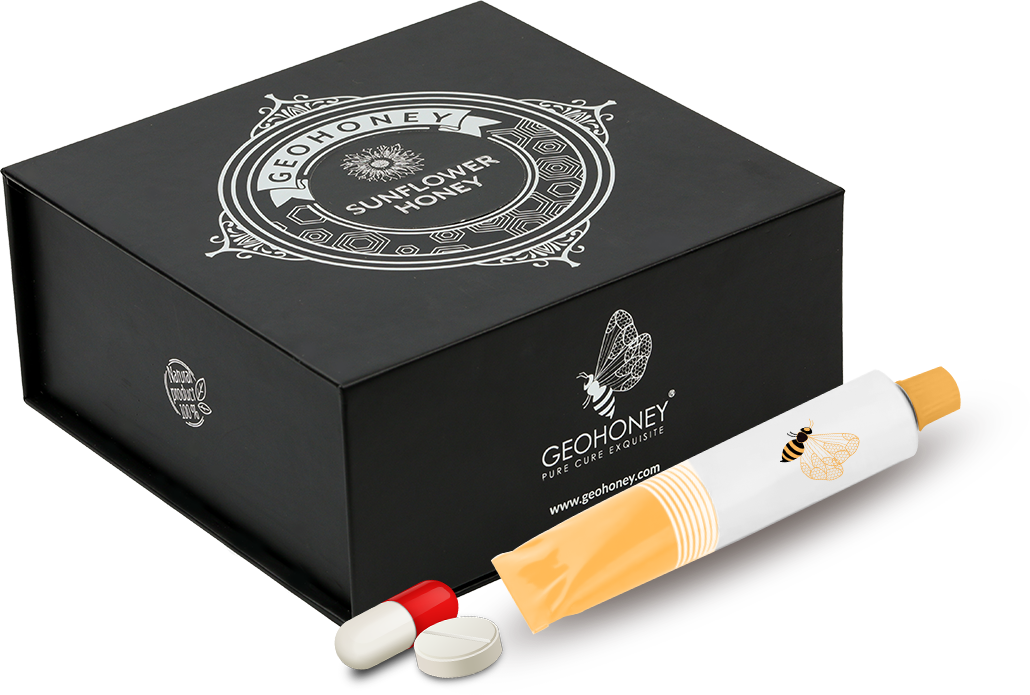
What Are the Benefits of Sunflower Honey?
-
Helps in Curing Intestinal Problems
The beneficial properties of sunflower honey have proved to help cure stomach – intestine problems.
-
Cures Problems with Heart & Blood Vessels
This type of honey is rich in beneficial components and properties, which show it offers faster results to those who have poor circulation in their hands and feet. Consuming a teaspoon full of this honey every day is advantageous, especially for diseases of the heart and blood vessels.
-
Soothes Allergies
It is beneficial for people suffering from seasonal allergies and can be used by older people to gain additional energy because of its mental tonic properties. It is also recommendable for all types of cold or flu, sneezing, sore throat, and fever.
-
Treats Skin Issues
Like other honey varieties, the rich anti-microbial properties of this honey helps in treating wounds, burns, dermatitis, sinusitis, and rhinitis. It can also be applied as a face mask for nourishing and cleansing. In addition, it makes skin softer and radiant and helps in unclogging the skin pores, thereby reducing skin aging signs.
-
Fast Crystallization is Added Benefit
hough fast crystallization is considered a downside of sunflower honey, keeping a piece of crystallized honey under the tongue is a great way to absorb nutrients faster.
-
Boasts Antioxidant Properties
Antioxidants are found in all honey types, including sunflower. Their crucial role is to safeguard cells against unsafe reactive oxygen molecules called free radicals. Free radicals can harm cells, trigger inflammatory responses and empower the development of chronic diseases going from cardiovascular disease to cancer growth.
-
Rich in Immune Boosting Properties
As sunflower honey has relatively high pollen content, it helps the immune system to function naturally. This, in turn, helps in treating various types of infections.
-
Nutritious
Sunflower honey not just has an energizing impact because of the way that it's generally (natural) sugars. Still, at the same time, it's nutritious, containing miniature components, for example, dietary minerals, chemicals, and amino acids, including essential amino acids we can't blend however need to get through diet. So even though they are found in relatively modest quantities, they raise the dietary benefit of the honey, making it an extraordinary expansion to our eating regimens.
How is Sunflower Honey Made?
As honey bees accumulate the sunflower nectar from the plants, it is mixed in with an enzyme inside the honey bee's mouth. The chemical is known as invertase or the "honey bee enzyme," which is released from the honey bee organs. When the honey bees return to the hive, they will pass the sunflower honey they have accumulated between themselves, further mixing the nectar with the "honey bee enzyme."
This will decrease the water content changing over the nectar into honey. They will then, at that point, store the sunflower honey into wax cells, but still, the water content may be unnecessarily high. So, to diminish the water content, the honey bees will fan their wings over the wax cell; this, thus, vanishes a portion of the water.
When the honey bees have completed the cycle, the honey will have a water content under 20%. The honey will then, at that point, be covered, and the honey bees will repeat the cycle.
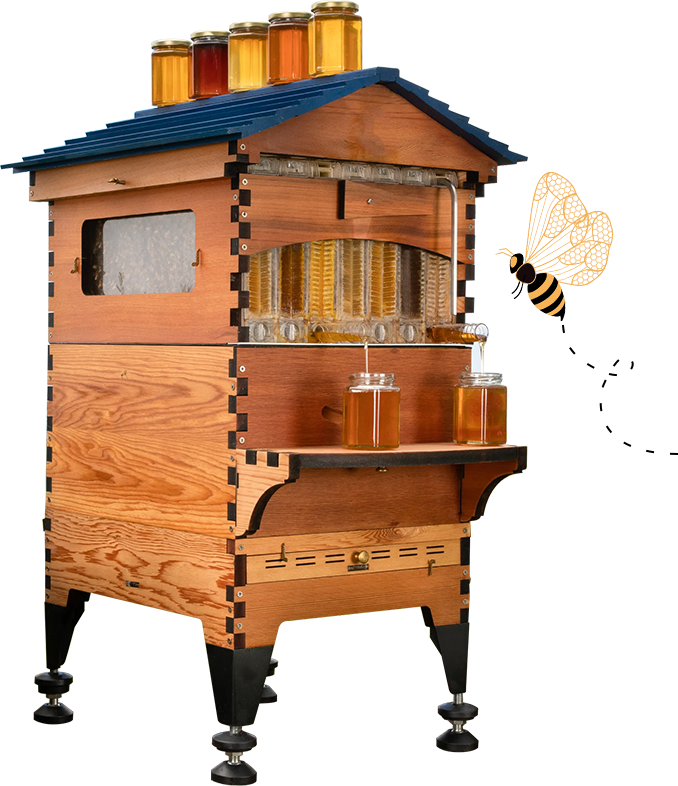
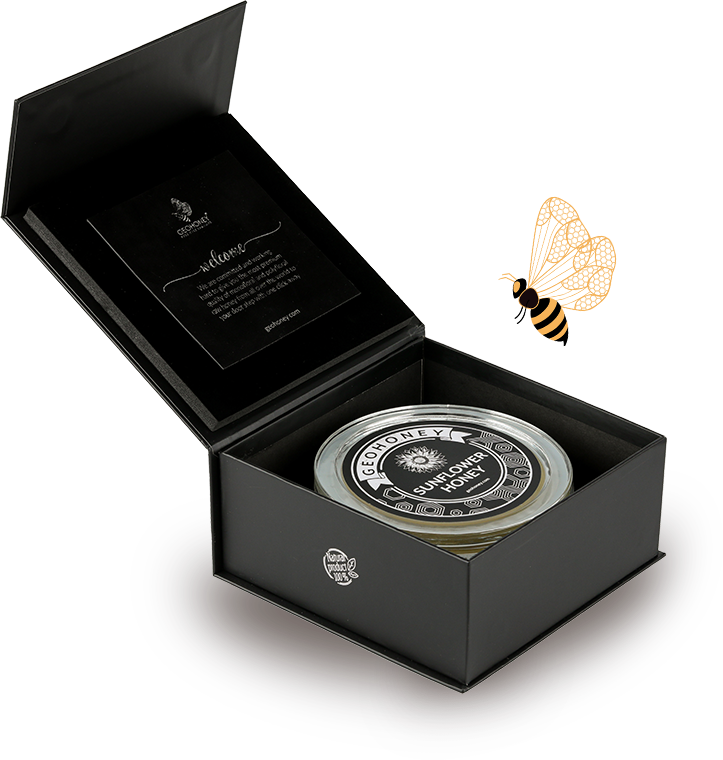
What Makes Sunflower Honey Different From Other Honey Types?
Sunflowers are the most recognized flowers and are usually grown for their seeds which are used to make vegetable oil. Raw sunflower honey comprises about 45% sunflower pollen. This honey variety is different from other honey available in the market because –
Y- It has a high level of fructose & glucose, a low level of sucrose, and a low glucose/fructose ratio.
- It offers medium sweetness, a short aftertaste, and firm acidity. Its unique flavor is fresh on the palate.
- It comes in a bright, yellowish color, which is quite appealing to the eyes.
Can Vegan People Eat Sunflower Honey?
The vegan society does not consider sunflower honey vegan. This is all because some honey producers may replace it with sugar substitutes when harvesting. This mixing honey with sugar substitutes reduces the essential micronutrients, thus detrimental to the honey bees.
Moreover, they accept that honey bees are explicitly reared to build usefulness in traditional beekeeping. Which they accept prompts a restricting of the populace genetic supply and builds defenselessness to illness and large scale die-offs.
Additionally, many honey farmers will winnow their hives post-collect and drastically limit the queen honey bee to prevent them from passing on to begin another state. Consequently, the Vegan Society doesn't think about being a honey vegetarian. That doesn't stop a few vegetarians contending it's fine, assuming they source their honey from reliable sources that do not practice the above.

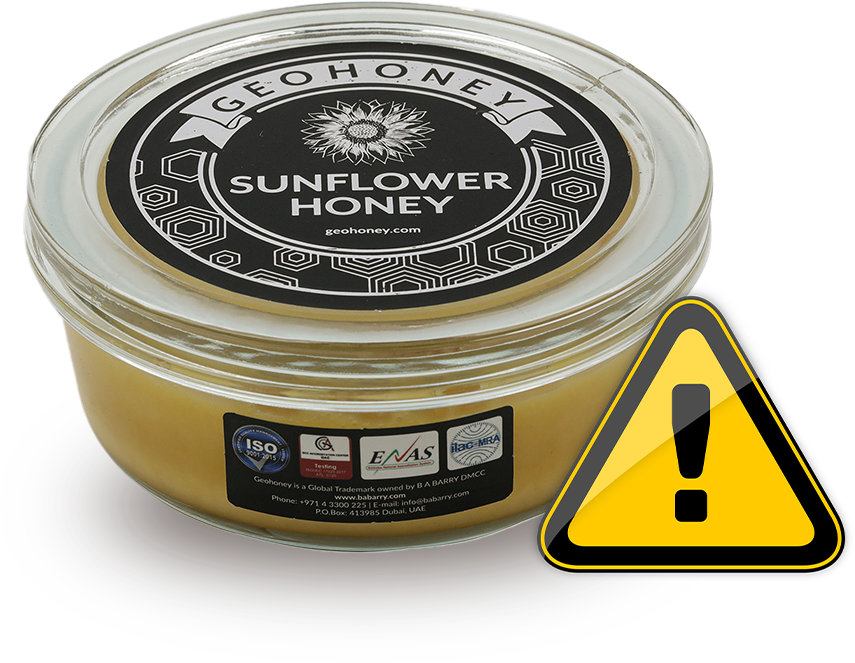
Allergies Related to Sunflower Honey Consumption
As it is relatively high in pollen count, sunflower honey can cause an allergic reaction in people allergic to pollen particles or bee products. In general, pollen particles are beneficial elements that strengthen the immune system and provide a more robust immune response.
Sunflower honey consumption can lead to mild allergies like rashes, itching, or more serious anaphylactic shock. It is suggested to take a skin allergy test first to rule out any potential allergy. And in case you experience any allergy symptoms after eating honey, it is a must to seek medical help immediately.
Takeaway
Sunflower honey consumption can lead to mild allergies like rashes, itching, or more serious anaphylactic shock. It is suggested to take a skin allergy test first to rule out any potential allergy. And in case you experience any allergy symptoms after eating honey, it is a must to seek medical help immediately.
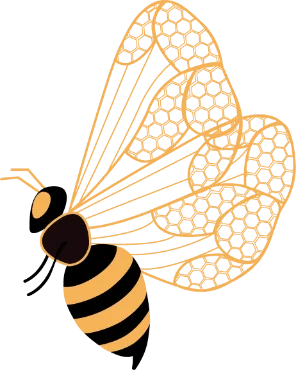
BUY OUR SUNFLOWER HONEY
What’s the buzz, Join the hive !
SIGN UP TO OUR NEWSLETTER
Be the first to know about our hot deals, new arrivals.



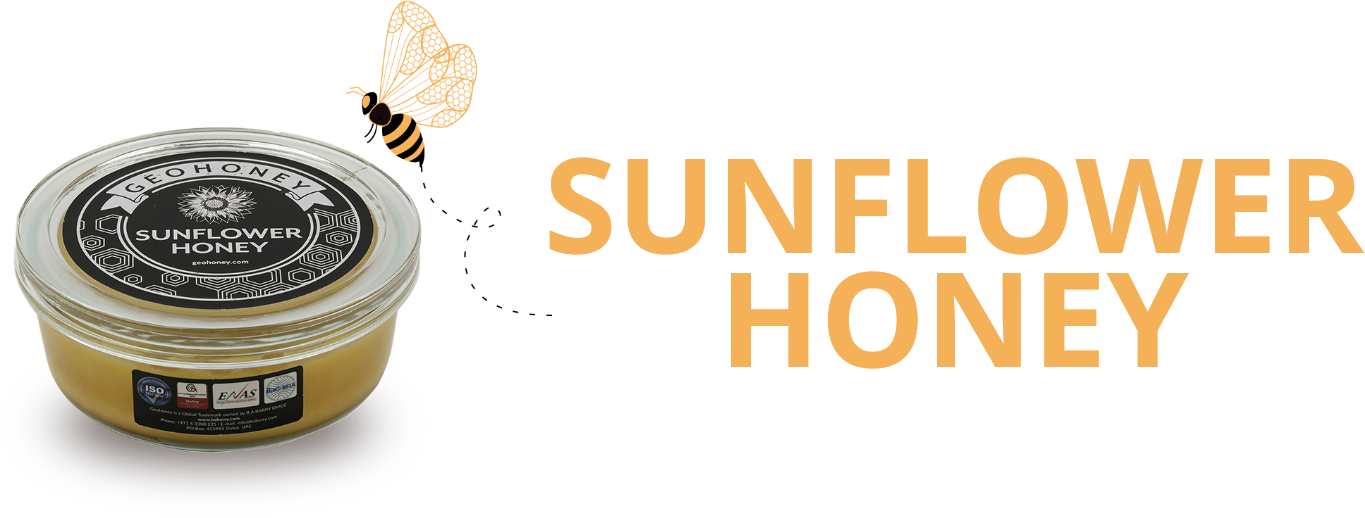

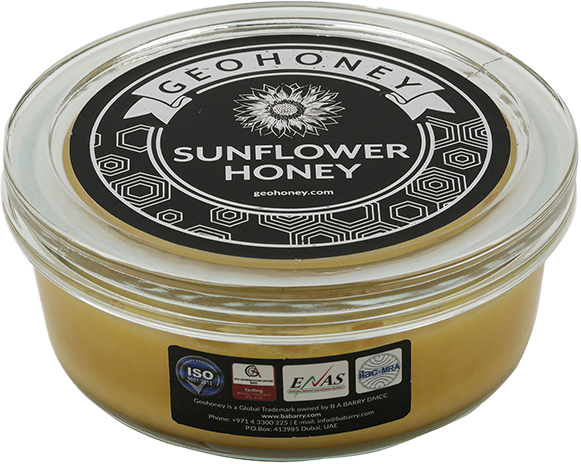


 Pay By Cards
Pay By Cards
 PayPal
PayPal
 Stripe
Stripe
 Other Payment Methods
Other Payment Methods










